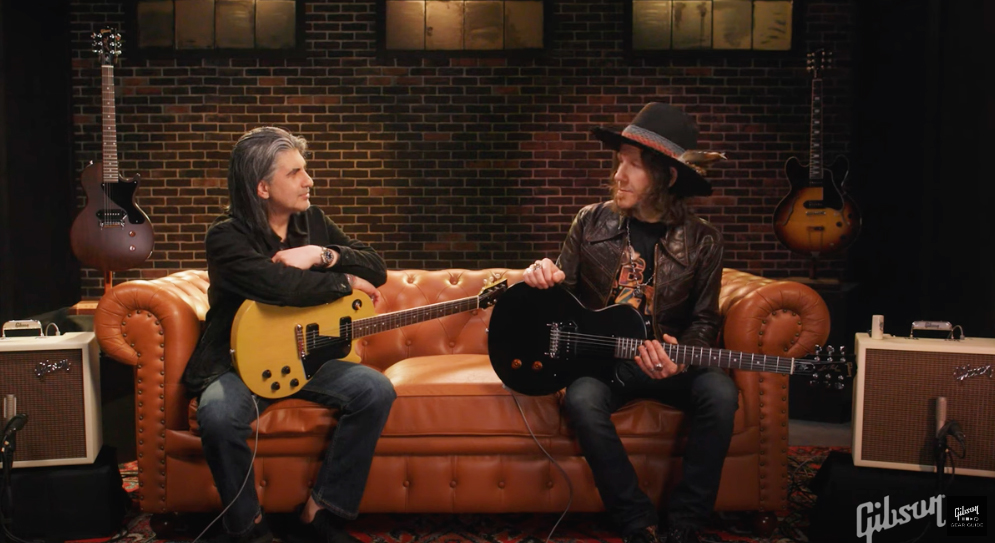
Even people who would never buy a Gibson Les Paul must have a soft spot for the Les Paul Junior – it's a beautiful tool, stripped of pretence and unnecessary luxury. That classic single P-90 configuration can do wonderful things, and change your perception of what a one-pickup guitar can do. Charlie Starr clearly understands this, but his forthcoming signature model with Gibson has just been revealed and it ups the ante on looks. It's a beauty.
The Blackberry Smoke mainman's recent appearance on the Gibson Gear Guide outed the new model –a satin nitro flat black Junior that brings a great balance of contemporary sleek understatement and classic minimalism to the '50s design. And there's a second finish option too.
In the video above the affable Starr and host Dinesh Lekhraj have a jam and then get down to talking about the stealthy single cut elephant in the room.
"What a great job Gibson has done," says a worthy and very pleased Starr. "It's based on my 1956 Gibson Les Paul Junior, which is an all-black refinished guitar. It's beaten and it's a Frankenstein – it's a got a lot of modifications and changed parts since it was born. But I think most of that stuff happened in the '70s.
"This guitar is a recreation of that idea with the compensated saddle bridge, speed knobs, Grovers [tuners] and some black paint," explains Starr. There's none of the wear of his original either but you can take care of that side yourself.

There are distinct advantages to a compensated adjustable wraparound bridge as opposed to the traditional Junior Lightning; namely more control over setting the intonation. "I think originally wraparound tailpieces were designed to use a wound G string in the '50s, and obviously people decided against that at some point," Starr notes. "As soon as people started bending the G string they said, oh I need something smaller – I need those banjo strings." Something more akin to the ABR design afforded to the other Les Paul models.
The other Junior hanging in the background of the video is Starr's other finish option – Walnut. Widening the potential appeal further.
Starr also detailed how he came to own his original '56 that solidified his love of the Junior: "I moved to Atlanta in the early '90s from East Alabama – Atlanta was the closest big city, it was an hour and change away. Soon after I moved there I started going to little mom and pop guitar stores and happened upon that guitar at Clark Music, which is no longer there but I met a lifelong friend there who sold me that guitar.
"He was like a matchmaker," remembers Starr. "I walked in and we met, he asked, 'Do you play guitar?' I said yes and he said, 'Come over here'. And I don't know why he showed me that guitar, and he doesn't either, but he said come and check this guitar. It belonged to Rick Richards from the Georgia Satellites, who is one of my favourite guitar players ever. And it had belonged to a few other people in Atlanta too. But he pulled that guitar off the wall and it was love at first feel, to quote Bon Scott."
It was $650 and at that point in around 1993, Starr was in his early 20s and couldn't comprehend finding such a figure. "He might as well have said $6 million," he recalls. "Who's got £650?!" He found a workaround – some gear to trade and a little cash, because he had to have the Junior. "So we made the deal and it's been with me ever since."
The neck profile of the new signature is based on that guitar, and the feeling is this isn't just a signature model with a huge appeal, but one Starr has more than earned over his years of touring and recording.
You can see Starr showing Gibson's Mark Agnesi his original Junior in the video above. We're still waiting for pricing and purchase news on the new signature model but expect it soon.







